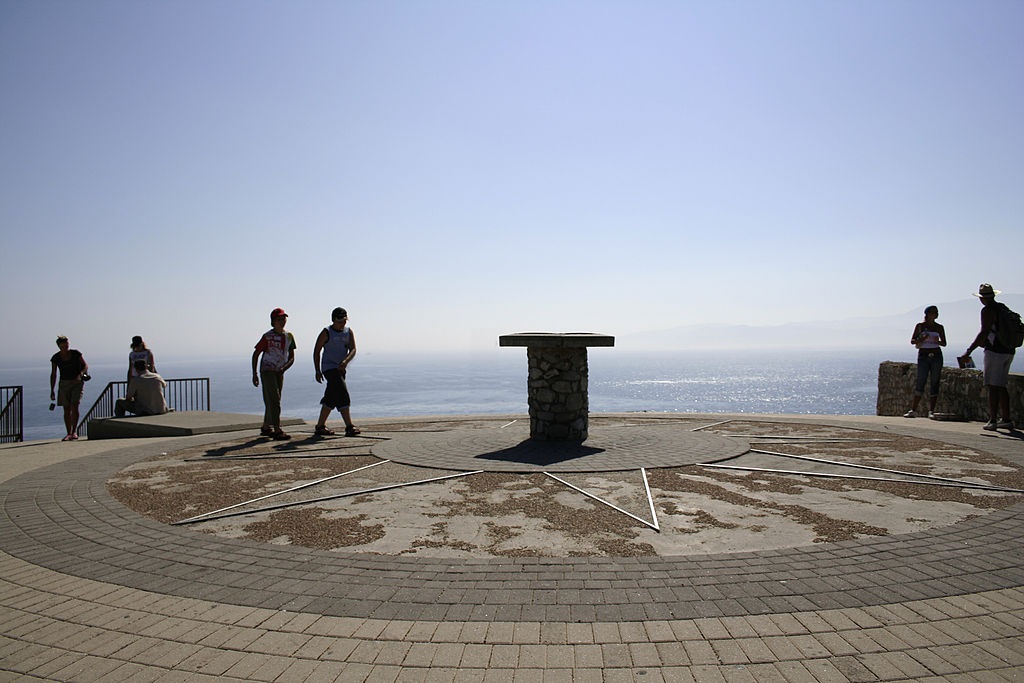by Dr Maria Mut, Research Fellow, Institute of Commonwealth Studies

Two classical physics theories perfectly apply to the current situation in Gibraltar. The first has been attributed to Heraclitus: ‘Everything flows, moves and nothing lasts forever’. The second one is commonly referred to as chaos theory. It states that small changes in initial concepts can involve major differences concerning future behaviour, frustrating long-term predictions. Put more simply, this is the so-called butterfly effect: the light fluttering of butterfly wings may cause unpredictable consequences or, more graphically, can lead to large-scale phenomena like tsunamis.
Heraclitus’s theory is applicable to Gibraltar since beyond any doubt this territory is more than just an Overseas Territory (OT). A brief visit to Gibraltar is enough to demonstrate that it is undergoing a transition. With all the usual historical and political caveats, the status of Gibraltar reminds me and can be equated with the Dominion status of the self-governing colonies, when they were on their path to becoming sovereign states. This status was officially recognised in the Balfour Declaration, issued by the 1926 Imperial Conference of British Empire.
Nowadays, Gibraltar has self-governing institutions, a Constitution (which recognises the right of self-determination) and a multicultural, cosmopolitan and mature society with a very strong sense of identity. I am not able to predict what the final status of Gibraltar will be, since according to the chaos theory, in this kind of situation the final result is unpredictable. However, it is clear to me that Gibraltar needs an ad hoc solution, which offers legal and political certainty to this territory. A solution that does not allow that every single time that an encounter or a disagreement between Spain and the UK happens, the will of the Gibraltarians can be endangered. Traditionally this issue has been treated from a classical International law approach, invoking and using legislation of 1713. Yet in the 21st century, international relations do not follow 18th century patterns. Therefore, controversies should be fully resolved through cooperation, tolerance and the dialogue of all the parties. Not only those parties that are recognised as international law subjects – Spain and the UK – but also the main international actors involved in this issue – in this case, Gibraltar. This situation cannot be tackled solely from a legal perspective, since that would entail the simplification of the problem in a way that ignored contemporary political realities. In this context, any dialogue that does not include the three principal players is doomed to failure.

Right now, Brexit is the butterfly fluttering and undoubtedly Gibraltar is feeling this flutter. Not only is it the responsibility of the UK and Spain to prevent that fluttering provoking a tsunami in Gibraltar and in the Campo de Gibraltar Spanish region. But also the EU and the Commonwealth have the responsibility to look for different formulas which facilitate the journey of Gibraltar. The EU demonstrated in the Kosovo case that it has its own legal personality, different from its member states. Despite some national reluctance, the EU was able to conclude a bilateral association agreement with Kosovo in 2016. Regarding Gibraltar, the EU should continue on this path. Therefore, it should act above national interests and protect the legitimate acquired rights of the more than 30000 Gibraltarians. These people have been part of the EU for more than 40 years and they always have proudly involved and committed to the European integration project. For its part, the approach of the Commonwealth, which has always been very supportive with micro-territories, has been characterised by pragmatism and flexibility. It has adapted to the transformation of the imperial territories and has welcome territories like Tuvalu (which has less than 10000 inhabitants) as member states. The Commonwealth should open channels that might allow Gibraltar actively to participate as well as to express its aspirations and fears, without intermediaries. If it is not legally possible to do so as a member state, there are other possible ways, for example granting this territory observer status. In short, it is still possible that the fluttering of the Brexit butterfly might bring a fresh ocean breeze to Gibraltar rather than a tsunami.

Recent Comments